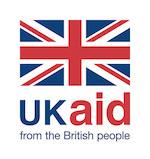Mobile networks and connectivity have become increasingly necessary in times of crisis. They allow us to connect with loved ones, whether they are down the street or on the other side of the world. They fill not only a very human need to connect during times of hardship, but they also allow the coordination of relief efforts and access to critical information, which in extreme cases can be lifesaving.
Mobile network operators (MNOs) play a crucial role in ensuring networks are resilient enough to continue to provide these services through times of crises and maximise their potential. GSMA launched the Humanitarian Connectivity Charter in 2015 to set out shared principles for the industry on how to best improve resilience and preparedness among MNOs.
Over the past five years, our signatories have learned a great deal about how to do this in practice. They’ve survived sudden onset natural disasters around the globe, sharing important lessons about how to better prepare for the future ensuring life-saving connectivity is available when people need it most.
Building a Resilient Industry: How Mobile Network Operators Prepare for and Respond to Natural Disasters is a web-based interactive guide for MNOs based on experiences with the Humanitarian Connectivity Charter. For the first time, GSMA has collated experiences from MNOs across the globe to share lessons and considerations with the wider sector.
The guide is interactive; various sections of the report will be relevant to different departments within an MNO – from HR to technical teams. The guide outlines considerations MNOs should take into account within various areas of their operations and examples of how MNOs have implemented these.



